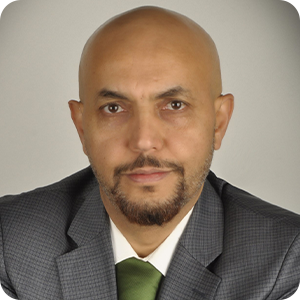The past few decades have been marked by important scientific discoveries and technological innovations in the space industry bringing impact for the international development sector among many others. From discovering new planets to launching missions to Mars, significant milestones in space exploration have been achieved. World Space Week, an annual holiday observed from October 4 to 10, is officially defined as “an international celebration of science and technology, and their contribution to the betterment of the human condition.” Let us find out more about the impact of space discoveries on international development from Abdul Khaleq Al-Qasaily, Entrepreneurship and Innovation Specialist.
Key Takeaways:
- Satellite Imaging and Remote Sensing, Global Navigation Satellite Systems, and Climate Monitoring are just some of the many tools offered by space industry development that prove invaluable for monitoring and achieving the UN’s SDGs
- Space technology’s global coverage and real-time capabilities enable diverse regions to tackle their specific development challenges effectively
DevelopmentAid: What role does the space industry play in addressing global challenges and fostering sustainable development in different regions?
 Abdul Khaleq Al-Qasaily: Space technology plays a pivotal role in addressing global challenges and fostering sustainable development by providing vital data for informed decision-making. From monitoring climate patterns and managing disasters to optimizing agriculture and resource allocation, space tech contributes to better policy formulation and resource utilization. This technology’s global coverage and real-time capabilities enable diverse regions to tackle their specific development challenges effectively.
Abdul Khaleq Al-Qasaily: Space technology plays a pivotal role in addressing global challenges and fostering sustainable development by providing vital data for informed decision-making. From monitoring climate patterns and managing disasters to optimizing agriculture and resource allocation, space tech contributes to better policy formulation and resource utilization. This technology’s global coverage and real-time capabilities enable diverse regions to tackle their specific development challenges effectively.
DevelopmentAid: What are some successful examples of space applications that have directly impacted international development and improved the livelihoods of people in underserved communities?
 Abdul Khaleq Al-Qasaily: Space applications like satellite-based crop monitoring, emergency response via satellite communication, and GPS navigation for transportation have directly improved underserved communities. For instance, India’s Indian Regional Navigation Satellite System aids navigation in remote areas, while Africa’s Regional Centre For Mapping Of Resources For Development supports agricultural monitoring. These solutions empower communities with valuable information, enhancing their livelihoods and resilience.
Abdul Khaleq Al-Qasaily: Space applications like satellite-based crop monitoring, emergency response via satellite communication, and GPS navigation for transportation have directly improved underserved communities. For instance, India’s Indian Regional Navigation Satellite System aids navigation in remote areas, while Africa’s Regional Centre For Mapping Of Resources For Development supports agricultural monitoring. These solutions empower communities with valuable information, enhancing their livelihoods and resilience.
DevelopmentAid: How can space-based technologies and satellite imagery contribute to monitoring and achieving the United Nations’ Sustainable Development Goals (SDGs) in developing regions?
 Abdul Khaleq Al-Qasaily: Space-based technologies, particularly satellite imagery, prove invaluable for monitoring and achieving the UN’s SDGs. They provide accurate and consistent data on urban growth, environmental changes, and more, aiding policymakers to evaluate progress and target interventions effectively. This technology contributes to evidence-based decision-making, enabling developing regions to track advances and address disparities toward the attainment of the SDGs.
Abdul Khaleq Al-Qasaily: Space-based technologies, particularly satellite imagery, prove invaluable for monitoring and achieving the UN’s SDGs. They provide accurate and consistent data on urban growth, environmental changes, and more, aiding policymakers to evaluate progress and target interventions effectively. This technology contributes to evidence-based decision-making, enabling developing regions to track advances and address disparities toward the attainment of the SDGs.
DevelopmentAid: What are the challenges faced by developing countries in accessing and utilizing space technology, and how can World Space Week help address these issues?
 Abdul Khaleq Al-Qasaily: Developing countries often face challenges in accessing and utilizing space technology due to limited resources and expertise. World Space Week serves as an opportunity to bridge this gap by promoting awareness and collaboration. By showcasing successful implementations, offering educational resources, and encouraging partnerships, this event empowers nations to leverage space technology for sustainable development, ultimately addressing the barriers faced by developing regions.”
Abdul Khaleq Al-Qasaily: Developing countries often face challenges in accessing and utilizing space technology due to limited resources and expertise. World Space Week serves as an opportunity to bridge this gap by promoting awareness and collaboration. By showcasing successful implementations, offering educational resources, and encouraging partnerships, this event empowers nations to leverage space technology for sustainable development, ultimately addressing the barriers faced by developing regions.”
Looking for new opportunities or applying for a job is not rocket science when you have the right tools at your fingertips. By becoming an Individual Professional Member you can access 9,500+ jobs, tenders and grants for individuals and many other tools on www.developmentaid.org – the largest database of information related to international aid sector.

